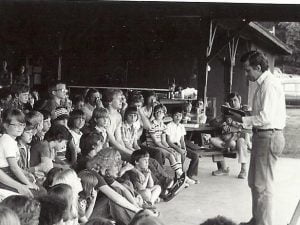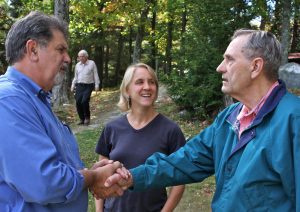That First Summer
In October 1965, Pastor Nevin Bender, Bethany Birches Camp Director from 1965 to 1980, submitted a report to friends and supporters of the camp about the very first camping session held during the summer of 1965. “The primary purpose of the camp” Bender wrote, “is to provide opportunity for children and youth from Vermont to participate in camping that has a Christian emphasis. This year a total of 83 boys and girls, ages 8—15, participated in the camp life. Bender listed three objectives for the camp that year: “First … to provide a good time for these children…;” “Second, to strengthen their ability to cooperate with each other…;” “Third, to undergird the entire camp program with a spiritual emphasis…” Bender ended his report with this request: “Pray for the continued work of the camp.” Today, we continue to ask for your prayers for Bethany Birches Camp, the staff and, most important, the campers. “We’re not that far away from 1965,” said Steve Moyer. The Camp’s mission is still the same—helping young people develop a relationship with their creator.
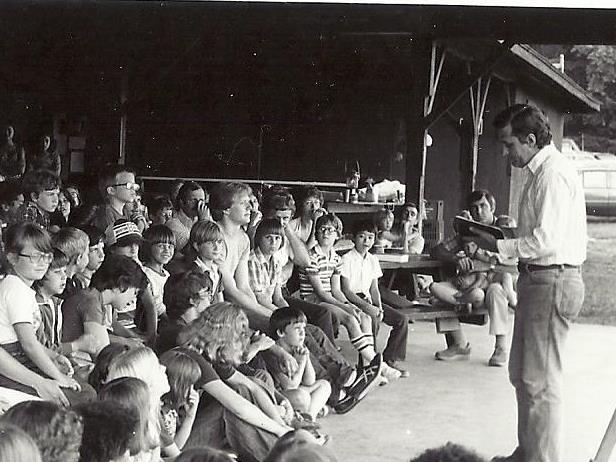
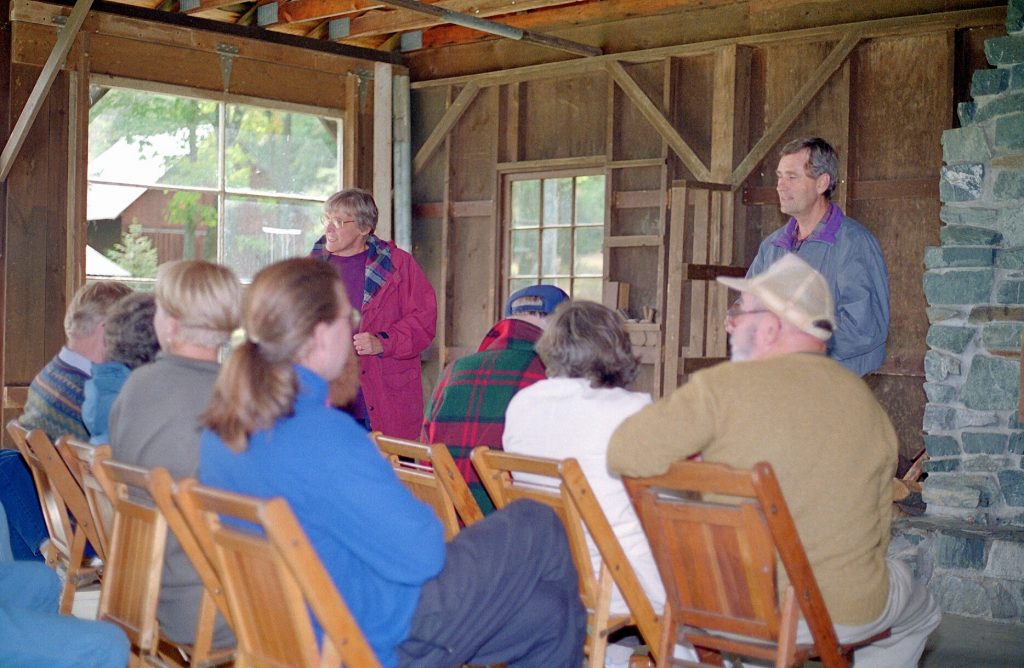

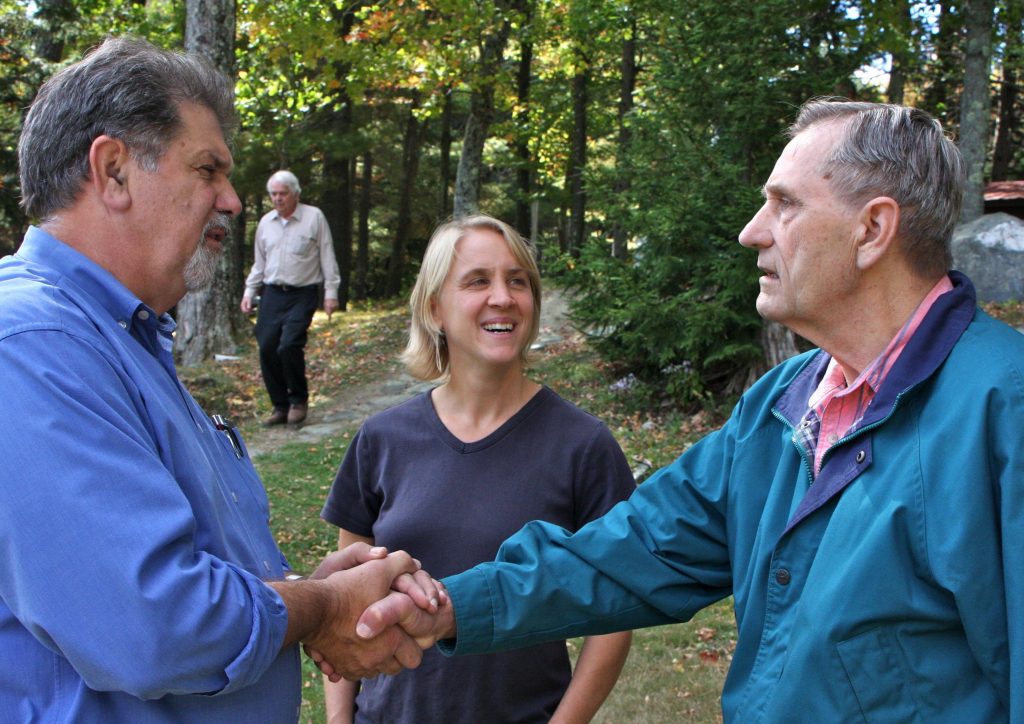
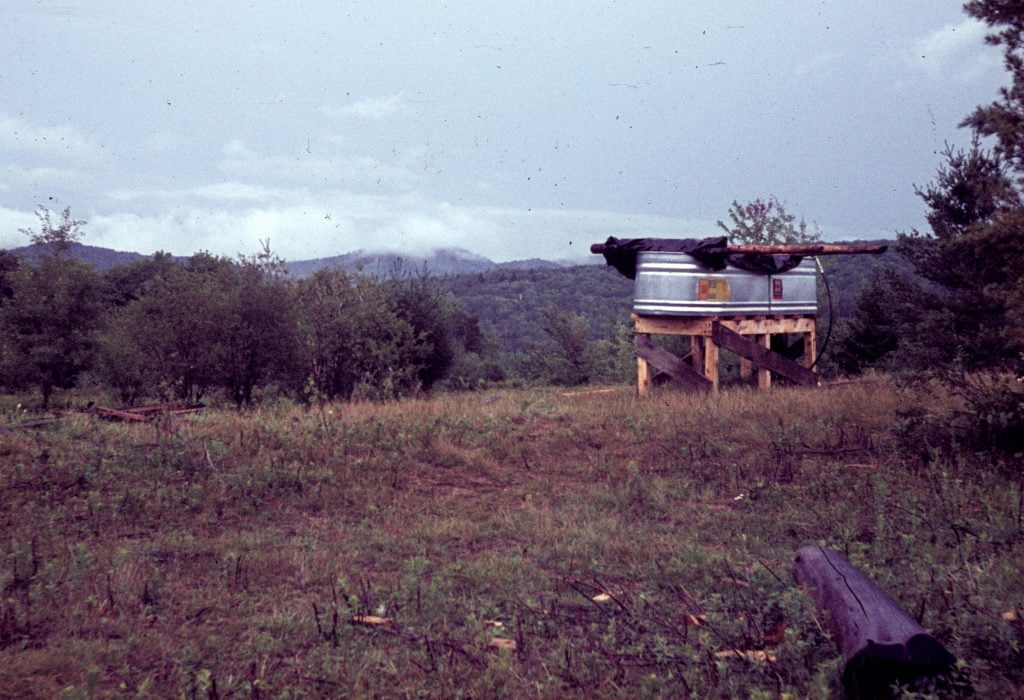
1965-1980: Nevin J. Bender, Camp Director
It is not possible to think of the early days of Bethany Birches Camp without thinking of Nevin J. Bender, the first Camp Director. Those who worked with Nevin at Bethany Birches Camp or attended services at Bethany Mennonite Church, where he served as pastor, hold many different memories and images of Nevin. But, when we think of all the good work that Nevin did, a passage from Isaiah (Chapter 58:12) comes to mind. “…you shall raise up the foundations of many generations…”
Nevin was born in Greenwood, Delaware and graduated from Eastern Mennonite College with a degree in Education (now Eastern Mennonite University). Nevin and Lourene (Godshall) Bender were married in June 1961. He started seminary at Eastern Mennonite Seminary but before he finished, the conference contacted him about going to Vermont to preach, so he left without completing his degree. Nevin and his wife Lourene came to Vermont in 1963. In 1968, Nevin and Lourene moved temporarily to Hartford, Connecticut where he studied at Hartford Seminary for a year in order to finish his degree and, at the end of the year, earned a Masters of Divinity degree.
When Lloyd Moyer first came to Nevin with the idea of donating land to start a summer camp for children, Nevin apparently jumped on the idea and was off and running. According to his daughter, Marcia, the camp was Nevin’s passion. There are many records from the early days at Bethany Birches which indicate the tremendous amount of work that Nevin and Lourene put into organizing and running the camp in those first years. Thought had to be given to facilities, however rudimentary they may have been, program, camper meals, as well as volunteers to help run the camp. At the same time, Nevin was shepherding the Bethany Mennonite Congregation, while he and Lourene were raising two very young children.
In the beginning, the idea and the reality of Bethany Birches Camp came together fairly quickly. In an article entitled “Camp and Servanthood, Vermont-style,” Richard L. Benner wrote: Bethany Birches Camp, sponsored by the Bethany Mennonite Church, Bridgewater Corners, was conceived in a handful of adventurous minds only in April, 1965*. From the generous hand of one of these, Lloyd Moyer, came the grounds, from some others came both reservation and enthusiasm, and from the pastor, Nevin J. Bender, Jr. [came] lots of plugging and sweat.” (Mission News, September/October 1965, page 6)
*Four months later, on a hot, humid August morning, the first week of camp began with 35 girls in attendance.
To help carve the camp out of a grown-over farm was no easy task. The help received from a Mennonite Youth Fellowship work camp from the Salford Mennonite Church in Pennsylvania was invaluable. The group worked for a week to clear away waist high brush, build a fireplace, construct an eating area and build tent platforms. In addition, the group worked on a volleyball field as well as building a latrine. One member of this group recalls her memory of Nevin Bender.
“Along about 9:30 every morning Nevin Bender, pastor of the Bethany Mennonite Church, would appear with his Rambler, bumping toward our campsite. While the scheduled crew got breakfast cleared away, we all headed in the direction of our tent for Bible study materials.” (Notes from Barbara Landis, Harleysville, Pennsylvania, published in the Franconia Conference “Mission News” September/October 1965.)
Clearly, Nevin was a “well rounded” director. “He could do a bit of everything,” said Steve Moyer. He was involved with worship, recreation and fireside programs; in rainy weather he walked around to every tent site to make sure campers got their camp fires going. There’s even a report of Nevin operating a bull dozer, loaned to the camp by the Jenne family, when work started on construction of the old pavilion. He and many others laid down the original outlines for the camp which are followed to this day. We are not that far away from 1965, as Steve Moyer said.
In a 2010 interview, Marcia Bender commented on her father’s work. Responding to the question: “What was important to Nevin?” she cited the following themes: community building and learning to trust each other, people and relationships and nature, building consensus, and trying new ideas. All of these themes can be seen in a report Nevin sent to the Franconia Mennonite Board of Missions & Charities (September 1966) in which he reports on the second year of Bethany Birches Camp.
“We feel greatly encouraged as we see the day-to-day working out of plans and are convinced that God planned this camp long before we became involved in it. We were better organized this year and provided a program of hiking, swimming, nature study, other recreation plus Bible study and campfire services. Some encouraging attitudes have been registered by community persons who talk about this camp as “Our” camp rather than the Mennonite camp. They are eager to identify with it.”
“Nevin was very civic-minded,” said Warren (Bud) Jenne of Bridgewater Corners. Bud and Nevin were contemporaries in Bridgewater, both involved in their [respective] church work and both involved in community activities. Bender served as the Chair of the Board of Civil Authority and Bud was a committee member. “Nevin was a very nice man,” Jenne said, “He’d do anything for anyone.”
In 1983 the Benders left Vermont and returned to Virginia where Nevin went to work for EMU on the grounds crew. He retired from that position in 2008 and, along with five others, was honored at a recognition dinner in April of that year. His colleague, Will Hairston said of Bender, “Nevin’s passionate faith, intense work ethic and model of service have been an inspiration to all.” (From Eastern Mennonite University website, EMU News, posted April 30th 2008).
Excerpt from Stories From The First 50 years, Volume 1

